Discover the charm of France on two wheels with self-guided cycling holidays, offering freedom to explore scenic regions like Provence, Loire Valley, and Alsace at your own pace․
What Are Self-Guided Cycling Holidays?
Self-guided cycling holidays in France offer a flexible, independent way to explore the countryside․ These tours provide detailed itineraries, pre-booked accommodations, and luggage transfers, allowing riders to travel at their own pace․ Unlike guided tours, there’s no group or leader—just you, your bike, and the freedom to discover iconic regions like Provence, Loire Valley, or Alsace․ Perfect for those who enjoy autonomy, these holidays combine adventure with the convenience of a pre-organized trip, making them ideal for cyclists of all levels and interests․
Why Choose France for Your Cycling Holiday?
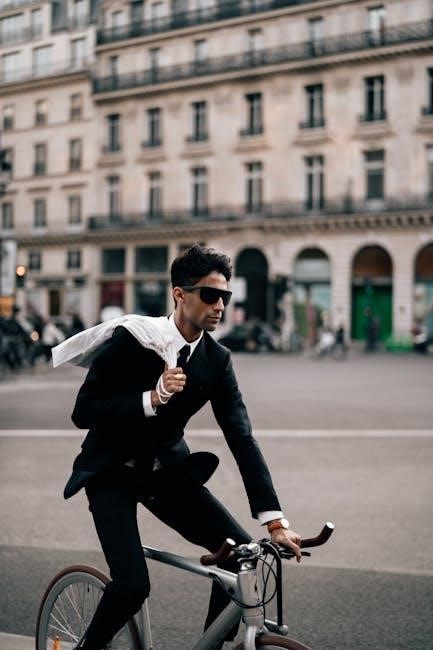
France offers a diverse landscape, from rolling hills to coastal routes, making it a cyclist’s paradise․ Its well-developed bike routes, scenic trails, and charming villages provide an unforgettable experience․ The country’s rich history, art, and cuisine add cultural depth to your journey․ With a strong cycling tradition and bike-friendly infrastructure, France is an ideal destination for self-guided tours․ Whether exploring vineyards, castles, or medieval towns, France promises a memorable adventure tailored to your pace and preferences․
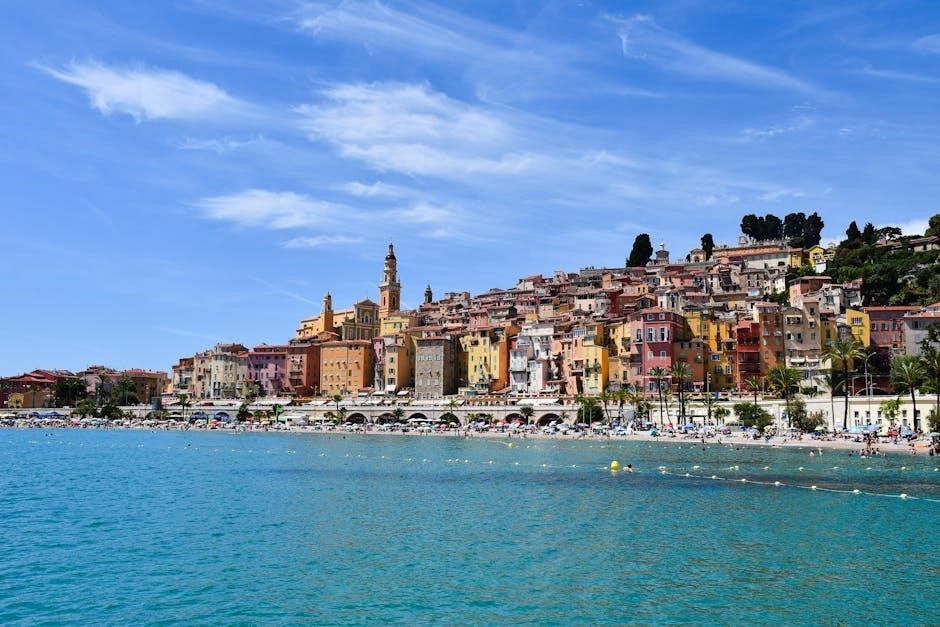
Benefits of Self-Guided Cycling Tours
Self-guided cycling tours offer freedom, flexibility, and an immersive experience, allowing you to explore at your own pace, enjoy local culture, and save on costs․
Flexibility and Freedom to Explore
Self-guided cycling tours in France offer unparalleled flexibility, allowing cyclists to craft their own journey and explore at their own pace․ Riders can choose routes, linger at scenic spots, or detour to hidden gems without a rigid schedule․ This freedom fosters a deeper connection with the landscape, culture, and local communities, creating a more authentic and memorable travel experience․ It empowers cyclists to balance adventure and relaxation, making every ride uniquely personal and rewarding․
Immersing in Local Culture
Self-guided cycling holidays in France provide a unique opportunity to immerse yourself in the rich local culture․ From charming villages to bustling markets, cyclists can engage with locals, sample authentic cuisine, and experience regional traditions․ The slower pace of cycling allows for meaningful interactions, such as visiting family-run vineyards or historical landmarks․ This intimate connection with France’s diverse heritage creates lasting memories and a deeper appreciation for its people, customs, and way of life․
Cost-Effective Travel Option
Self-guided cycling holidays in France are a cost-effective way to explore the country․ Without the expense of guided tours, travelers can allocate funds to accommodation, dining, and activities that suit their budget․ Cycling is an economical mode of transport, and self-catering options like gîtes reduce meal costs․ This flexibility allows for a memorable trip without overspending, making it an appealing choice for budget-conscious travelers seeking an authentic French experience at their own pace․
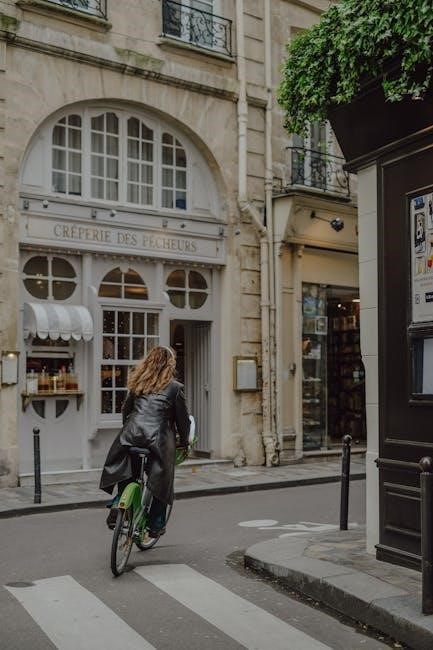
Popular Regions for Self-Guided Cycling in France
Discover France’s diverse landscapes on two wheels․ Explore Alsace’s charming villages, Provence’s rolling hills, Loire Valley’s historic châteaux, Dordogne’s medieval sites, Burgundy’s vineyards, and Bordeaux’s coastal routes․
Alsace: A Blend of History and Scenic Routes
Alsace offers a unique blend of history, culture, and stunning landscapes, making it a favorite for self-guided cycling holidays․ The famous Alsace Wine Route winds through picturesque villages, medieval castles, and vineyards․ Cyclists can enjoy the region’s flat and rolling hills, perfect for all skill levels․ Discover charming half-timbered houses, vibrant markets, and a rich history that reflects both French and German influences․ The scenic routes are dotted with historical landmarks, providing endless opportunities to explore and immerse yourself in Alsatian heritage․
Provence: Rolling Hills and Vineyards
Provence captivates cyclists with its rolling hills, fragrant lavender fields, and sprawling vineyards․ The region’s scenic routes offer a mix of challenging climbs and leisurely rides through picturesque villages like Gordes and Roussillon․ Cyclists can explore medieval towns, sample renowned wines, and enjoy the Mediterranean climate․ The Luberon and Mont Ventoux areas provide stunning backdrops, making Provence a must-visit destination for self-guided cycling holidays in France․
Loire Valley: Castles and Riverside Paths
The Loire Valley offers a magical cycling experience, with its iconic châteaux, lush forests, and serene riverside paths․ Cyclists can explore UNESCO-listed sites like Chambord and Chenonceau, while enjoying the flat, scenic routes along the Loire River․ Quaint villages, vineyards, and market towns add charm to the journey․ The region’s gentle terrain makes it ideal for riders of all levels, providing a perfect blend of history, nature, and French elegance․
Dordogne: Medieval Villages and Natural Beauty
The Dordogne region captivates cyclists with its picturesque medieval villages, dramatic limestone cliffs, and lush green landscapes․ The winding Dordogne River offers serene paths for riders, while nearby attractions like the prehistoric Lascaux caves add historical depth․ Cyclists can explore charming villages, visit ancient castles, and enjoy local delicacies․ The region’s varied terrain, from gentle riverside routes to rolling hills, provides a diverse and enriching experience for cyclists of all levels, surrounded by timeless beauty and tranquility․
Burgundy: Wine Country and Quiet Roads
Burgundy is a cyclist’s paradise, offering picturesque vineyards, charming wine villages, and tranquil roads․ The region’s renowned wine routes, such as the Route des Grands Crus, provide a scenic backdrop for riders․ Quiet country lanes wind through rolling hills, perfect for leisurely rides․ Cyclists can explore medieval towns like Nuits-Saint-Georges and Puligny-Montrachet, savoring local wines and rich culinary traditions․ The region’s gentle terrain and idyllic countryside make it an ideal destination for a relaxed, culturally immersive cycling experience․
Bordeaux to Toulouse: Coastal and Inland Routes
This scenic route offers a diverse cycling experience, blending coastal charm and inland beauty․ Starting in Bordeaux, riders can follow the Atlantic coast, enjoying fresh sea air and beaches․ Inland, the journey reveals rolling hills, dense forests, and quaint villages․ The route is ideal for cyclists seeking varied landscapes, with manageable terrain suitable for all skill levels․ Historical sites, charming towns, and local cuisine add to the allure, making this route a perfect blend of adventure and cultural immersion․
Planning Your Itinerary
Designing your route involves mapping distances, accommodations, and attractions․ Balance cycling with cultural experiences, ensuring flexibility for spontaneous stops and must-see landmarks along the way․
Choosing the Right Route for Your Skill Level
Choosing the right route for your skill level ensures a enjoyable and safe cycling experience․ France offers diverse terrains, from flat riverside paths to challenging mountain climbs․ For beginners, opt for routes with gentle slopes and shorter distances, such as the Loire Valley or Alsace․ Intermediate cyclists can explore rolling hills in Provence or the Dordogne․ Advanced riders may prefer the rugged landscapes of Burgundy or the Pyrenees․ Match your route to your fitness and experience for maximum enjoyment․
Creating a Daily Schedule
A well-structured daily schedule enhances your cycling holiday experience․ Start by setting realistic distances based on your fitness level and terrain․ Allow time for sightseeing, meal breaks, and rest․ Plan mornings for cycling, afternoons for exploring, and evenings for relaxation․ Include flexibility to adjust if delays occur․ Avoid overpacking your itinerary to enjoy spontaneous moments․ Balance activity with downtime to fully appreciate France’s landscapes and culture․ A clear plan ensures a smooth and enjoyable journey․
Booking Accommodation in Advance
Reserving accommodation ahead ensures a smooth cycling holiday․ Popular regions in France, especially during peak seasons, fill up quickly․ Book hotels, B&Bs, or self-catering gîtes in advance to secure convenient locations along your route․ This avoids last-minute scrambles and allows you to budget accurately․ Use reputable platforms or local tourism websites to explore options․ Confirming your stays early guarantees peace of mind and lets you focus on enjoying the ride and France’s beautiful landscapes without unnecessary stress․
Budgeting for the Trip
Budgeting is essential for a self-guided cycling holiday in France․ Estimate costs for accommodation, food, bike rentals, and activities․ Daily expenses can range from €80 to €150 per person, depending on your choices․ Plan for meals, snacks, and occasional trattoria visits․ Consider bike rental fees (€20–€40/day) and sightseeing entry fees․ Allocate extra for souvenirs and unexpected expenses․ Booking early and cooking some meals can help save money, ensuring a memorable trip without overspending․
Essential Items to Bring
Pack comfortable cycling gear, navigation tools, safety equipment, lightweight luggage, and weather-appropriate clothing for a self-guided cycling holiday in France․
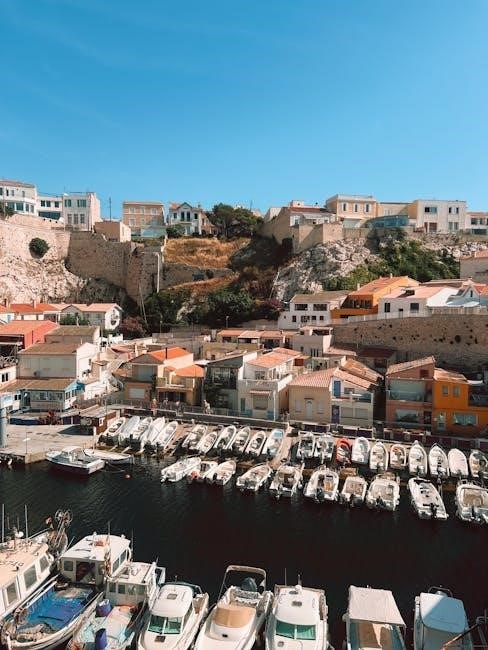
The Right Bike for the Terrain
Choose a bike suited to France’s diverse landscapes․ Road bikes are ideal for smooth routes, while hybrid or gravel bikes handle mixed terrain․ For challenging paths, consider a mountain bike․ Ensure proper fit and maintenance․ Bring spare tires, a puncture kit, and reliable brakes․ If unsure, rent a bike designed for the region’s specific conditions․ Electric bikes are also a great option for longer distances or hilly areas, offering added comfort and ease during your cycling adventure․
Cycling Clothing and Accessories
Invest in comfortable, breathable cycling clothing designed for long rides; Padded shorts and moisture-wicking fabrics are essentials․ Opt for a lightweight jersey with pockets for storage․ Bring a windbreaker or lightweight jacket for unpredictable weather․ Don’t forget sun protection, including a hat and sunglasses․ Wear cycling gloves for grip and comfort․ Sturdy footwear, such as cycling shoes, enhances pedaling efficiency․ Add reflective accessories for visibility and safety on the road․ Carry a water bottle or hydration bladder to stay refreshed throughout your journey․
Safety Gear and First Aid Kit
A helmet is essential for safety, and reflective gear enhances visibility․ Carry a basic first aid kit with bandages, antiseptic wipes, and pain relievers․ Include a spare inner tube, tire levers, and a multi-tool for minor bike repairs․ A small flashlight and whistle can be useful in emergencies․ Don’t forget sunscreen, insect repellent, and any personal medications․ Keep emergency contact details handy․ Always check local regulations for required safety equipment to ensure a secure and enjoyable journey․
Navigation Tools and Maps
Carry a GPS device or smartphone with a cycling app like Komoot or Ride with GPS for precise route tracking․ Download offline maps to navigate areas with limited internet․ Bring a detailed paper map as a backup, highlighting your route in advance․ Consider a compass for orientation․ Pack spare batteries for electronic devices and store digital copies of your itinerary․ Research local signposting systems to stay on track․ Pre-loading routes ensures seamless navigation, even in remote regions․
Luggage and Packing Tips
Opt for lightweight, water-resistant luggage to ensure comfort and protection․ Use panniers or a bike trailer for easy access to essentials․ Pack versatile clothing suitable for varying weather conditions․ Include a basic toolkit, spare tires, and a first aid kit․ Roll clothes to save space and reduce wrinkles․ Secure luggage properly to avoid shifting during rides․ Bring reusable water bottles and snacks for convenience․ Check the weather forecast beforehand to pack accordingly․ Organize items for easy access, keeping valuables separate․
Accommodation Options
France offers diverse lodging choices for cyclists, including charming hotels, cozy B&Bs, self-catering gîtes, and scenic campsites․ Each option provides convenience, comfort, and local charm․
Hotels and B&Bs Along the Route
Hotels and B&Bs offer convenient stays for cyclists, often located near cycling paths and villages․ These accommodations provide en-suite rooms, hearty breakfasts, and local charm․ Many hotels cater specifically to cyclists, offering secure bike storage and repair facilities․ B&Bs, or chambres d’hôtes, are ideal for a more personalized experience, with hosts often sharing local knowledge․ Both options ensure a comfortable rest after a day of exploring France’s scenic routes, blending convenience with authentic hospitality․
Self-Catering Gîtes and Apartments
Self-catering gîtes and apartments provide independence and flexibility for cyclists․ These properties range from rustic countryside cottages to modern city apartments, offering fully equipped kitchens for meal preparation․ Ideal for longer stays, they allow cyclists to manage their schedules freely․ Many gîtes are located in rural areas, perfect for exploring France’s countryside․ This option is cost-effective for groups or families, combining the comfort of a home-away-from-home with the freedom to plan meals and rest days as desired during the cycling holiday․
Camping for the Adventurous
Camping offers an adventurous and budget-friendly way to experience France’s great outdoors․ Cyclists can pitch tents in scenic campsites near trails, immersing themselves in nature․ Facilities often include basic amenities, and some sites cater specifically to cyclists․ Camping provides flexibility, allowing riders to stop wherever they wish․ It’s an ideal choice for those seeking simplicity and a closer connection to the environment․ Many campsites also offer eco-friendly options, enhancing the sustainable travel experience for cyclists exploring France’s diverse landscapes and regions․
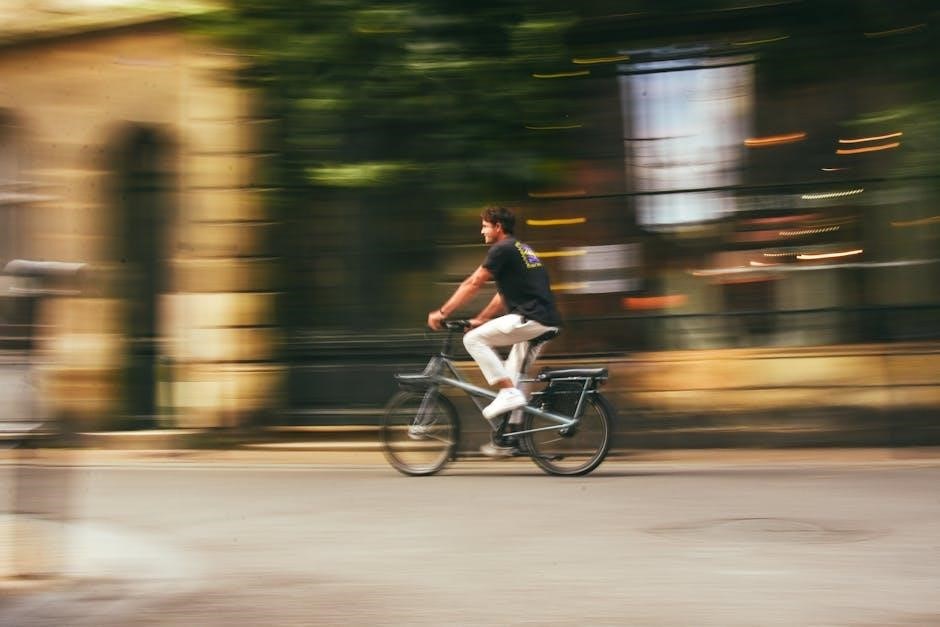
Cultural Experiences
Cultural experiences on self-guided cycling holidays in France offer an immersive chance to delve into the rich heritage, from historical landmarks to local cuisine and vibrant festivals․
Exploring Historical Landmarks
Exploring historical landmarks on a self-guided cycling holiday in France allows cyclists to uncover the country’s rich past at their own pace․ Iconic sites such as the Eiffel Tower, Notre-Dame, and Mont Saint-Michel offer breathtaking views and insights into France’s architectural and historical heritage․ Cyclists can meander through ancient villages, visit medieval castles, and pause at memorials, creating a memorable journey through time while immersing themselves in the region’s captivating history․
Sampling Local Cuisine
Sampling local cuisine during your self-guided cycling holiday in France is a delightful way to experience the country’s culinary richness․ From buttery croissants and freshly baked baguettes to regional dishes like Coq au Vin and Bouillabaisse, every meal is a taste of French tradition․ Don’t miss the artisanal cheeses, charcuterie, and desserts like Crème Brûlée․ Local markets offer fresh produce, while bistros and cafés provide authentic dining experiences, making your cycling adventure a journey of flavors and cultural discovery․
Wine Tasting in Famous Regions
France’s iconic wine regions, such as Bordeaux, Burgundy, and Champagne, offer unparalleled wine-tasting experiences during your cycling holiday․ Explore vineyards, visit wine estates, and enjoy guided tours with private tastings․ Savor renowned vintages like Merlot and Chardonnay while learning about winemaking traditions․ Cycling through rolling vineyards makes the experience even more memorable, allowing you to connect with local winemakers and indulge in the rich flavors of France’s wine heritage․
Attending Local Festivals
France’s vibrant festivals offer a unique cultural experience for cyclists․ From music and dance celebrations to seasonal food festivals, these events showcase regional traditions․ Many villages host fetes with live performances, local cuisine, and wine․ Cycling allows you to stumble upon these events naturally, immersing yourself in the lively atmosphere․ Participating in festivals adds a memorable dimension to your holiday, connecting you with the local community and its rich cultural heritage․
Safety Tips for Cyclists
Always wear reflective gear, follow traffic rules, and carry a first aid kit․ Stay visible, keep emergency contacts handy, and be aware of your surroundings․
Understanding French Road Safety Laws
Cyclists in France must adhere to strict road safety laws․ Wear reflective vests at night, ensure bikes have proper lighting, and use designated cycle lanes when available․ Helmets are mandatory for riders under 12, and handheld phone use while cycling is prohibited․ Always follow traffic signals and stay alert for pedestrians․ Familiarize yourself with local road signs and regulations to avoid fines․ Prioritize visibility and caution, especially on busy roads, to ensure a safe and enjoyable journey․
Basic Bike Maintenance
Regular bike maintenance is crucial for a smooth cycling holiday․ Check tire pressure daily and lubricate the chain to prevent rust․ Inspect brake pads for wear and ensure the derailleur is clean․ Carry a multi-tool for adjustments and a spare inner tube for punctures․ Familiarize yourself with basic repairs to avoid delays․ A well-maintained bike ensures reliability and safety on France’s diverse terrain, allowing you to focus on enjoying the scenic routes and cultural experiences․
Weather Conditions and Precautions
France’s weather varies by region and season․ Expect rain in spring and autumn, heatwaves in summer, and cooler conditions in winter․ Always check forecasts before departure and pack accordingly․ Carry waterproof gear for unexpected showers and lightweight clothing for warmer days․ Stay hydrated, wear UV protection, and plan routes to avoid extreme weather․ Be prepared for occasional strong winds, especially in coastal areas․ Awareness of weather conditions ensures a safer and more enjoyable cycling experience across France’s diverse landscapes․
Emergency Contacts and Preparations
Before your self-guided cycling holiday in France, ensure you have essential emergency contacts․ Carry a list of important numbers, such as 15 for medical emergencies and 17 for the police․ Keep your travel insurance documents and ID easily accessible․ Pack a basic first-aid kit, a multi-tool, and a mobile phone with a portable charger․ Inform someone of your daily route and planned stops․ Knowing what to do in an emergency ensures peace of mind and allows you to focus on enjoying your cycling adventure in France․
Technology and Navigation
GPS devices and cycling apps like Ride with GPS or Komoot are essential for self-guided tours in France, offering real-time directions and route planning․ Use apps to track your progress, find points of interest, and navigate efficiently․ Ensure your smartphone is compatible with local SIM cards for data access․ Many bikes come equipped with mounts for holding devices, making navigation seamless during your adventure․
Using Apps for Route Planning
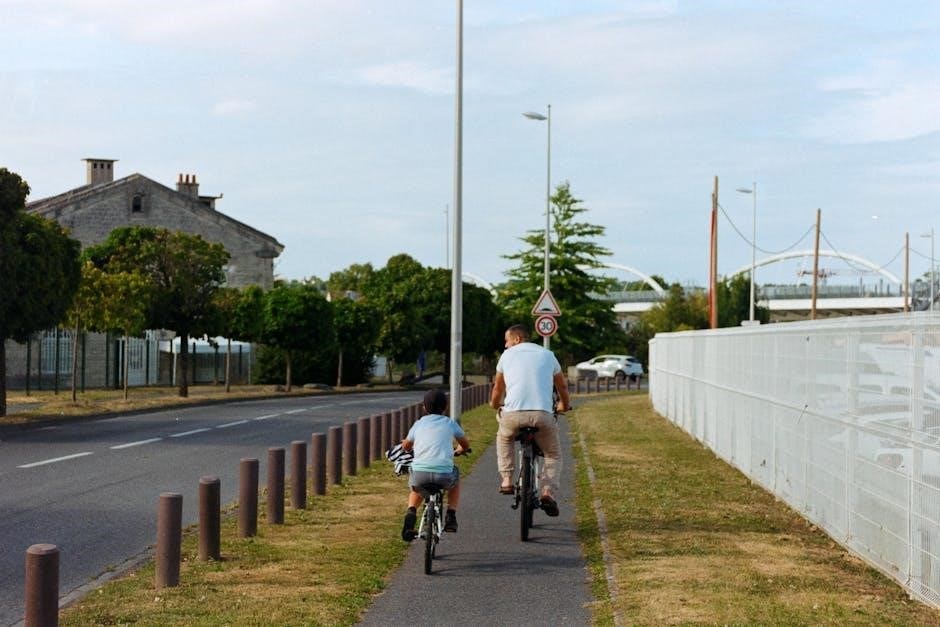
Apps like Ride with GPS, Komoot, and Google Maps are indispensable for planning routes during self-guided cycling holidays in France․ These tools offer real-time navigation, customizable itineraries, and offline maps, ensuring you stay on track even in rural areas with limited internet․ Riders can pre-download routes, track progress, and discover hidden gems like scenic trails or quaint villages․ Many apps also provide elevation profiles and points of interest, helping you tailor your journey to suit your preferences and riding style․ This technology enhances the freedom and enjoyment of your adventure․
Tracking Your Ride with Fitness Apps
Fitness apps like Strava and MapMyRide are excellent for tracking your self-guided cycling holiday in France․ These apps monitor distance, speed, and route, providing real-time performance insights․ Riders can share achievements and compete with others, adding a fun competitive edge․ Additionally, they allow you to document your journey, creating a memorable record of your adventure․ This feature is especially useful for reflecting on your progress and planning future rides, making your cycling holiday even more rewarding and enjoyable․
GPS Devices for Navigation
GPS devices are indispensable for self-guided cycling holidays in France, offering precise turn-by-turn directions․ Popular models like the Garmin Edge provide preloaded maps, customizable routes, and real-time updates, ensuring you stay on track․ Many devices include voice commands and touch screens for easy navigation․ They also track performance metrics like speed and distance․ Additionally, GPS devices often feature weather resistance and long battery life, making them reliable companions for your cycling adventure in France․
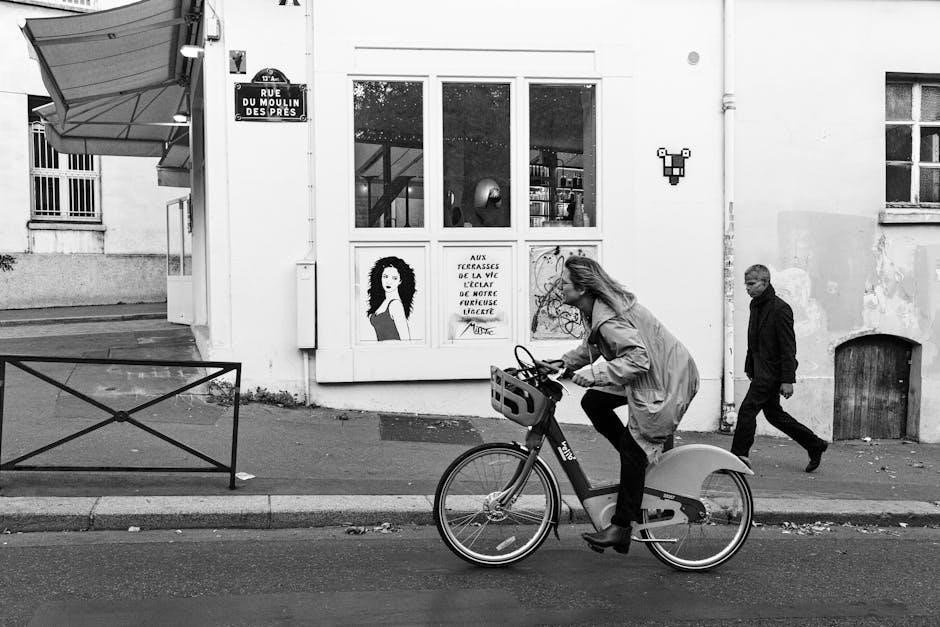
Renting vs․ Bringing Your Own Bike
Renting a bike in France offers convenience, as it eliminates transportation hassles and ensures the bike is suited for local terrain․ Many rental shops provide high-quality bikes with necessary accessories․ However, bringing your own bike guarantees familiarity and comfort․ If you choose to bring yours, ensure it is well-maintained and suitable for the trip․ Both options have merits, so consider factors like convenience, cost, and personal preference when deciding․
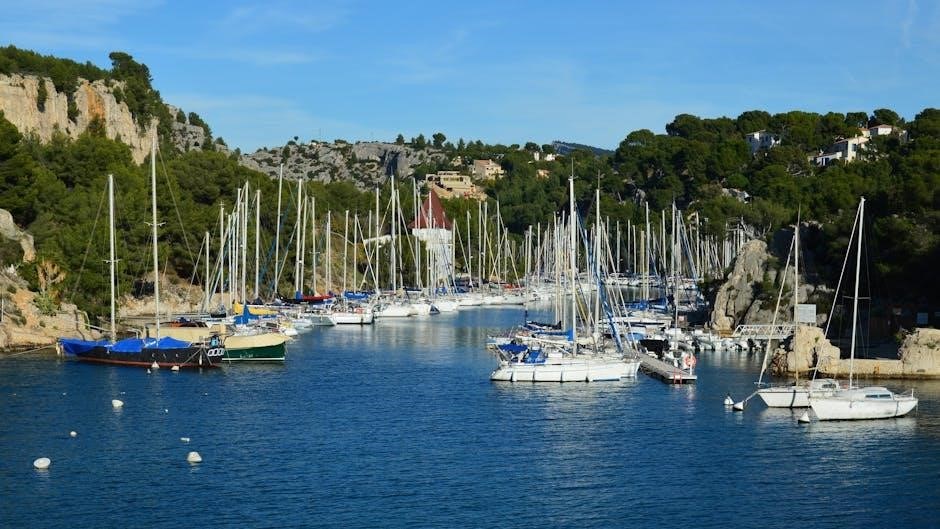
Testimonials and Reviews
Travelers praise self-guided cycling holidays in France for scenic routes, charming accommodations, and cultural immersion․ Many highlight the freedom to explore at their own pace․
Customer Feedback on Popular Tours
Customers rave about self-guided cycling tours in France, praising the meticulously planned routes and scenic landscapes․ Many appreciate the high-quality bikes and detailed maps provided․ The flexibility to stop at charming villages and local eateries is a highlight․ Travelers also commend the excellent accommodations, ranging from cozy B&Bs to historic hotels․ The combination of physical activity, cultural immersion, and gastronomic delights makes these tours unforgettable․ Feedback consistently highlights the well-organized logistics and the joy of exploring France at their own pace․
Success Stories from Past Travelers
Many travelers share inspiring tales of their self-guided cycling adventures in France․ A family from Australia completed a week-long tour in Provence, describing it as a life-changing experience․ A solo cyclist from the U․S․ praised the sense of accomplishment after riding through the Loire Valley․ Couples celebrating anniversaries often highlight romantic dinners and picturesque routes․ These stories reflect the transformative power of exploring France by bike, creating lasting memories and a deep connection to the country’s diverse landscapes and culture․
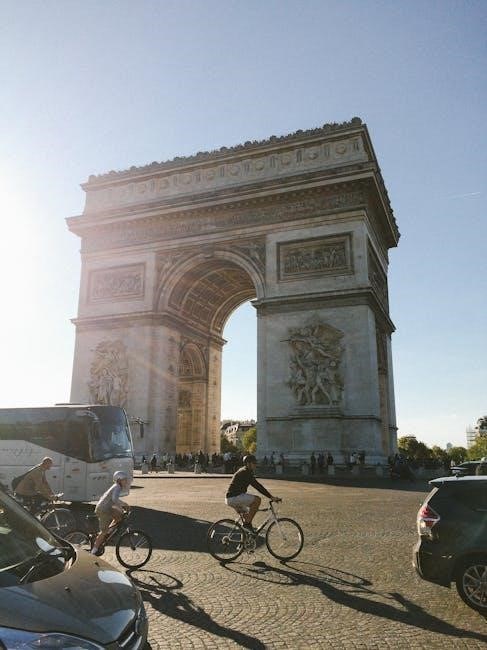
Final Tips and Last-Minute Deals
Seize spontaneous opportunities, embrace local surprises, and prioritize flexibility to make your cycling holiday unforgettable․ Last-minute deals often offer exceptional value, so stay alert for seasonal discounts․
How to Make the Most of Your Trip
Embrace flexibility and personalize your journey to suit your preferences․ Take time to engage with locals, savor regional delicacies, and soak in France’s vibrant culture․ Prioritize scenic detours and spontaneous stops to capture unforgettable moments․ Stay organized with reliable navigation tools and a balanced itinerary, allowing room for both exploration and relaxation․ By immersing yourself in the unique charm of each region, you’ll create lasting memories of your self-guided cycling adventure in France․
Finding Last-Minute Discounts
Scan tour operator websites for late availability offers, as many provide last-minute discounts to fill spots․ Consider mid-week departures or off-peak seasons for lower prices․ Sign up for newsletters and follow social media for flash sales․ Book directly with local hotels or bike rental companies, as they often offer deals for unsold rooms or equipment․ Additionally, apps like Booking․com and Expedia frequently list discounted packages for self-guided cycling holidays in France․